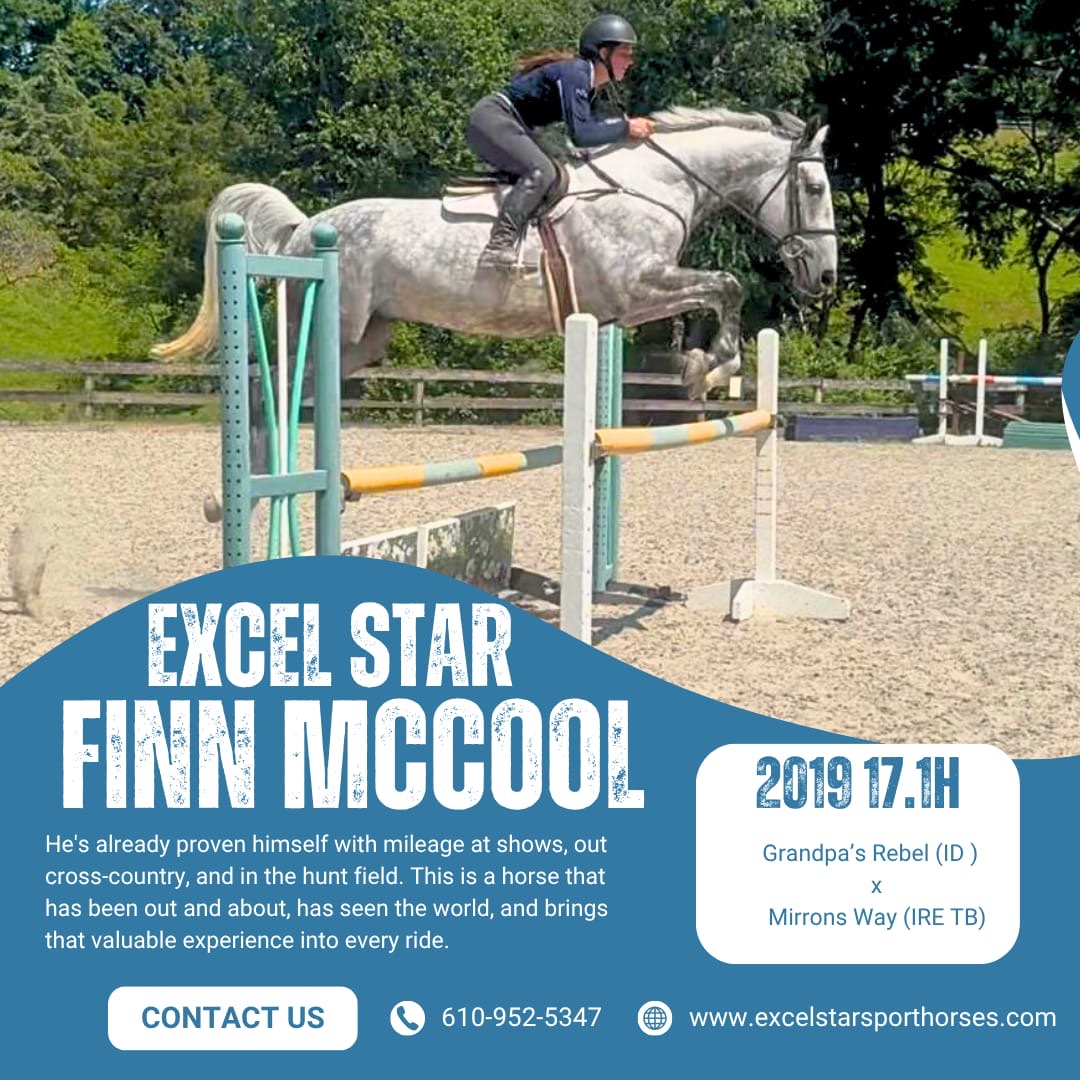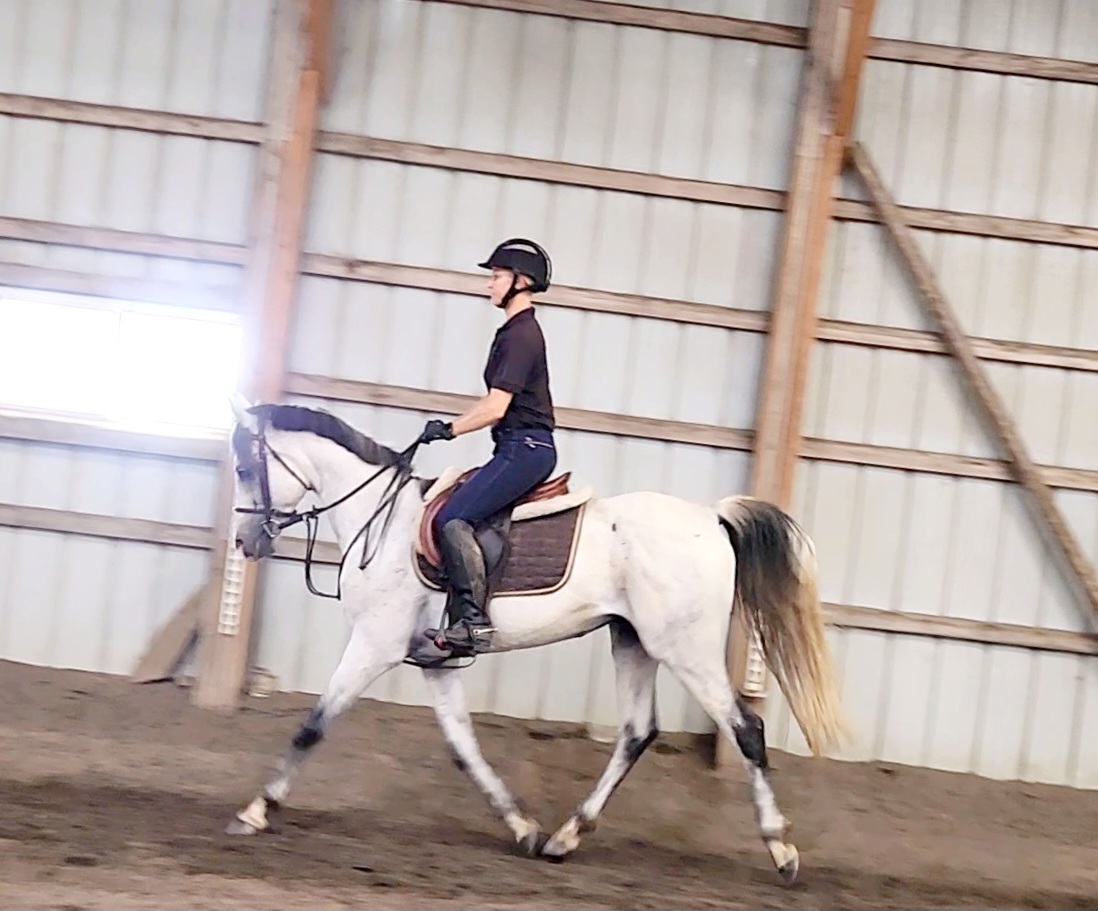Gillian Warner is bringing us along for the ride as she strikes out on her own to launch her business as a professional. You can catch up on the first part of this series here.

Growing up as a competitive equestrian, I always thought becoming a professional would mean a strong emphasis on competing. I’ve come to realize it can be incredibly broad.
There are many capacities in which someone could become a professional equestrian. I’ve always imagined working with horses full time as a model that’s heavily focused on competition — finding owners, bringing horses along, and competing at international-level competitions.
While, of course, that is one path to take, and a path that does involve goals of mine, when trying to determine whether or not I wanted a professional career with horses, I realized that the path I wanted to take didn’t completely resemble what I had always envisioned.
For many years in high school and college, when I was contemplating a switch to professional status, I was always hesitant to do so, since I wasn’t sure I wanted to follow the competition-oriented model I’ve seen outlined so many times before. I enjoy competing, and setting goals for myself and my horses to reach, but it isn’t what I love most about working with horses — it doesn’t fire me up in the same way watching a young horse problem-solve does, or helping a student clear their first fence.
When considering why I wanted to pursue an equine career, I came to recognize my passions within the industry: I love to teach, engage with the community surrounding all things horses, and work with young horses, or horses and riders struggling to communicate clearly. After finding positions that allowed me to prioritize these passions, I knew I wanted to pursue building a career centered on them.

Creating my tagline “Building Partnerships” serves as a daily reminder of my model and focus.
There’s nothing like starting a horse that goes to a home that loves him more than you ever thought possible. Or encouraging a new rider to try their first canter, resulting in a smile that seems to stretch on for miles. The flutter of excitement when a previously hard-to-catch horse canters up to you in the field, or an older horse finding a new sense of curiosity in positive reinforcement and target training keeps me motivated day in and day out.
These moments clarified that my reason for doing this work is to build partnerships between horses and riders. I want to introduce riders to the sport, give horses a kind, compassionate, and consistent foundation, and clarify the communication we can have with our equine partners.
Being honest enough to recognize what I love, even if it’s not what I envisioned, allowed me to create a better model for me: One that allowed me to focus on teaching and training in efforts in line with my passions and goals. Focusing my time and energy on opportunities consistent with my why helps re-energize me, even during a long day.
The point of all of this being, there are many capacities in which riders could find a career with horses. Tailoring your work to match your needs is possible. Do you want to work with horses full-time, or find a way to balance an equine career with your other professional passions? Do you want to primarily compete, or do you not want to compete at all? Do you like to manage and organize teams? Maybe finding a role as a barn manager could be right for you. There are a host of opportunities that fall well within these spectrums.

Finding opportunities to work to build partnerships between horses and riders and invite the community into the equine industry are two components of the work I’ve established that bring meaning to what I do every day.
If you’re considering kick starting a career with horses, or you’re interested in finding a new balance in your own riding, spend some time thinking about your why. Consider your passions, and also think about the needs around you. What does your community need or want? Are there opportunities to introduce students to riding? Or is your community lacking upper-level opportunities? What are some skills that you have to fill those needs? Of course, you can think of those skills as directly relating to horses, but they could also include networking or organizing if you see clinic or show opportunities as lacking.
Working with horses is not a one-size-fits-all situation. Considering the numerous capacities you could fulfill will open opportunities not regularly recognized, and even help develop your community while supporting you in finding work that you find to be meaningful and energizing. Once I took the pressure off of myself to be the professional I thought I “should” be, I was allowed to step into a role that gives back to both myself and the people and horses around me. Don’t be afraid to explore creative approaches to how you engage with the equine industry!



















